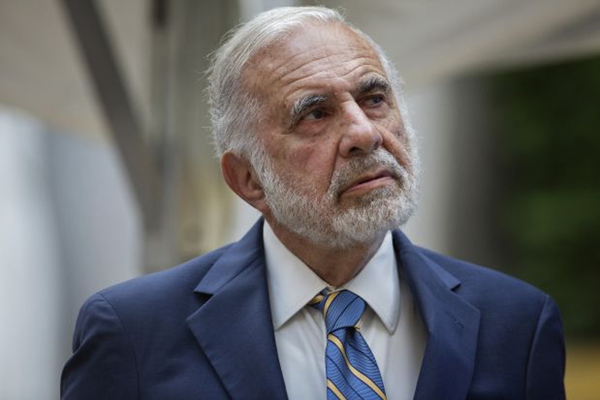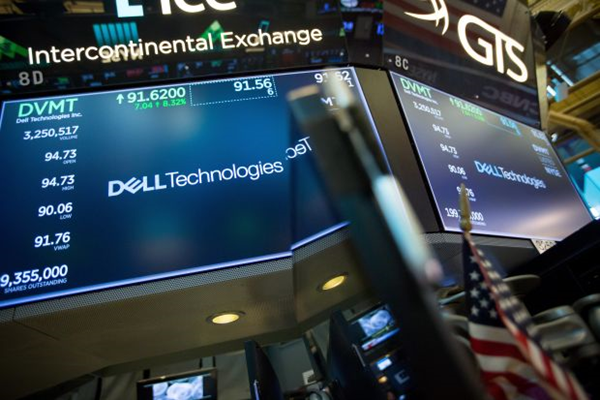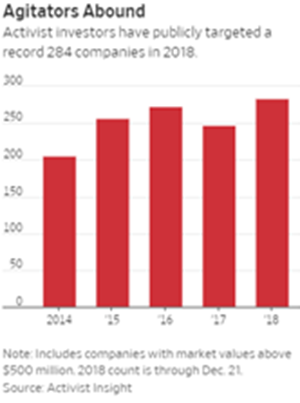THE
WALL STREET JOURNAL.
Markets
|
DEALS
Activist Investors Gain Clout as Stocks Tumble
A
record of more than 280 companies around the world with market
values of more than $500 million were publicly subjected to
activist demands in 2018
|

The billionaire activist investor Carl Icahn, seen here in 2015,
publicly targeted nine companies in 2018. PHOTO: VICTOR J.
BLUE/BLOOMBERG NEWS |
By
Cara Lombardo
Dec. 26, 2018 7:00 a.m. ET
Shareholder activists have had their busiest year ever
as market declines make companies more affordable and the investors
and their tactics become more widely accepted.
A record 284 companies around the world with market values of
more than $500 million were publicly subjected to demands from activists between
Jan. 1 and Dec. 21, up from 252 in all of 2017, according to data provider
Activist Insight. Elliott Management Corp., Carl Icahn and Starboard Value LP
were the busiest, with Elliott publicly targeting 24 companies and the other two
taking aim at nine each.
As activism spreads internationally, the number of non-U.S.
companies attracting campaigns rose to 148 from 125, with the largest
year-to-year increase in Asia, the data show.
Activists, who take stakes in companies and push them to make
changes to boost their stock prices, benefited from a market that was beset by
fears of rising interest rates, slowing economic growth and trade tension. For
activists, who tend to make big bets on companies facing challenges, that has
created opportunity.
“The market downturn makes some of our clients feel more
vulnerable,” said Shaun Mathew, a partner at Kirkland & Ellis LLP who advises
companies on how to prepare for and respond to activists. “It’s easier to pick
on companies.”
In all, activists and other investors employing their techniques
have secured a record 194 board seats so far this year, a nearly 42% increase
from 2017, according to Activist Insight. And 64% of those board seats came from
settlements negotiated with companies rather than shareholder votes, its data
show, which allow both sides to avoid expensive proxy fights.
Trying to capitalize on market declines won’t prove wise if the
stocks activists pick keep falling. Activist performance has already been
lackluster, trailing the S&P 500 for most of the year, according to HFR Inc.
That hasn’t deterred activists like Mr. Icahn and Elliott, and
they weren’t the only threats companies faced in 2018. Former executives, fed-up
longtime investors and frustrated heirs showed up at companies including Sharpie
maker Newell
Brands Inc., review
site YelpInc. and Campbell
Soup Co. ,
some with established activists in tow.
Investors of all stripes have been more willing
to pressure companies to bend to their will as money flows into passive
funds and active stock managers seek any edge they can find.
|

Monitors display Dell Technologies signage at the New York Stock
Exchange. Shareholders pressured the company to sweeten its
offer when it returned to the public markets this
year. PHOTO: MICHAEL NAGLE/BLOOMBERG NEWS |
Dell Technologies Inc. received
reams of shareholder feedback after announcing a plan to return to the
public markets via the buyout of a publicly traded affiliate—including
from some investors who have traditionally avoided confrontation. A
public push led by Mr. Icahn and a lawsuit from the billionaire
investor helped
prompt Dell to negotiate a sweetened bid with several of the
shareholders.
Investors are recognizing the benefits of speaking up and doing
so early in campaigns, said Bruce Goldfarb, head of Okapi Partners LLC, a
proxy-solicitation firm that helps activists and companies communicate with
shareholders.
“It’s to their advantage to put their mouth where their money
is,” he said.
Directors have come to realize that even companies largely owned
by friendly shareholders aren’t immune to activist onslaughts, advisers say.
Despite a slumping stock and repeated strategic missteps,
Campbell for years avoided activists, partially because a more than 40% stake
owned by heirs to the soup dynasty acted as a deterrent. But in September,
Daniel Loeb’s Third Point LLC teamed up with one of the heirs to launch a proxy
fight to replace the food maker’s entire board.
|

Daniel Loeb’s Third Point got two board members on Campbell
after it mounted a proxy fight against the soup dynasty. PHOTO: RICHARD
B. LEVINE/ZUMA PRESS
 |
|
The two sides engaged in a heated back-and-forth up until a few
days before the shareholder vote, when they struck
a settlement adding two Third Point nominees to the board and giving the
fund input on another new director and on Campbell’s new chief executive.
Activists themselves are evolving, in many cases by toning down
their rhetoric and elevating issues that matter to the shareholders whose
support they increasingly need.
Larger activist funds such as ValueAct Capital Partners LP are
giving more airtime to environmental, social and governance concerns, which
appeal both to their own investors and to index-fund managers who JPMorgan Chase
& Co. says control 26% of the S&P 500.
Elliott, long known as one of the most aggressive activists,
established an in-house stewardship team that has softened
its image and Jana Partners LLC teamed
up with the California State Teachers’ Retirement System to lobby Apple Inc. to
add screen-time controls. Meanwhile, activists and defense advisers have been
competing to hire people with corporate-governance expertise from places like
index-fund giant BlackRock Inc.
“Activism has changed in two significant ways: the convergence of
active managers behaving more aggressively and activists who are behaving
perhaps more benignly,” said Steven Barg, global head of Goldman Sachs Group
Inc.’s activism-defense practice.
Write
to Cara Lombardo at cara.lombardo@wsj.com